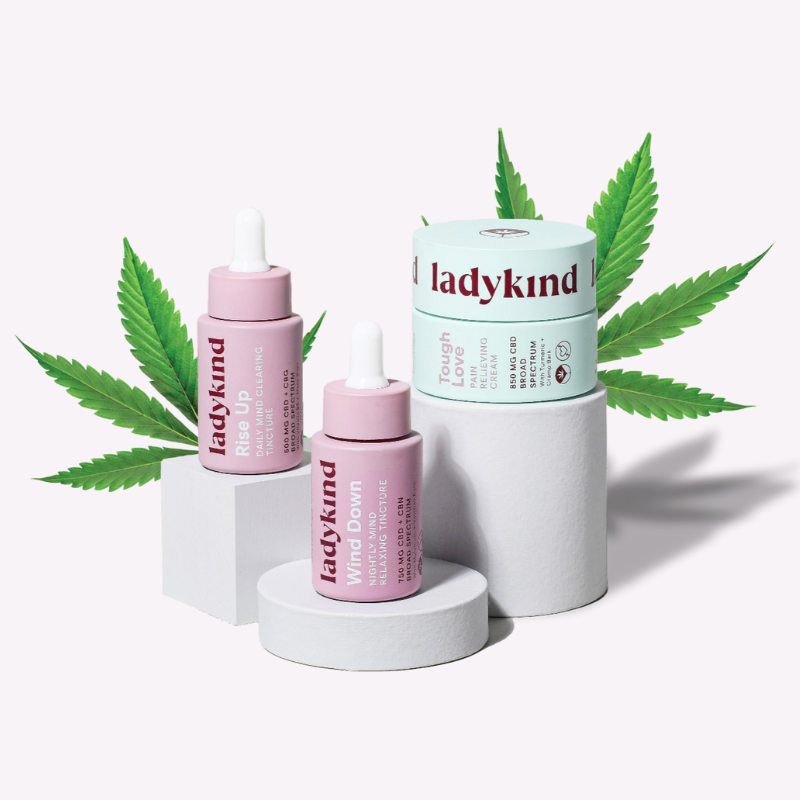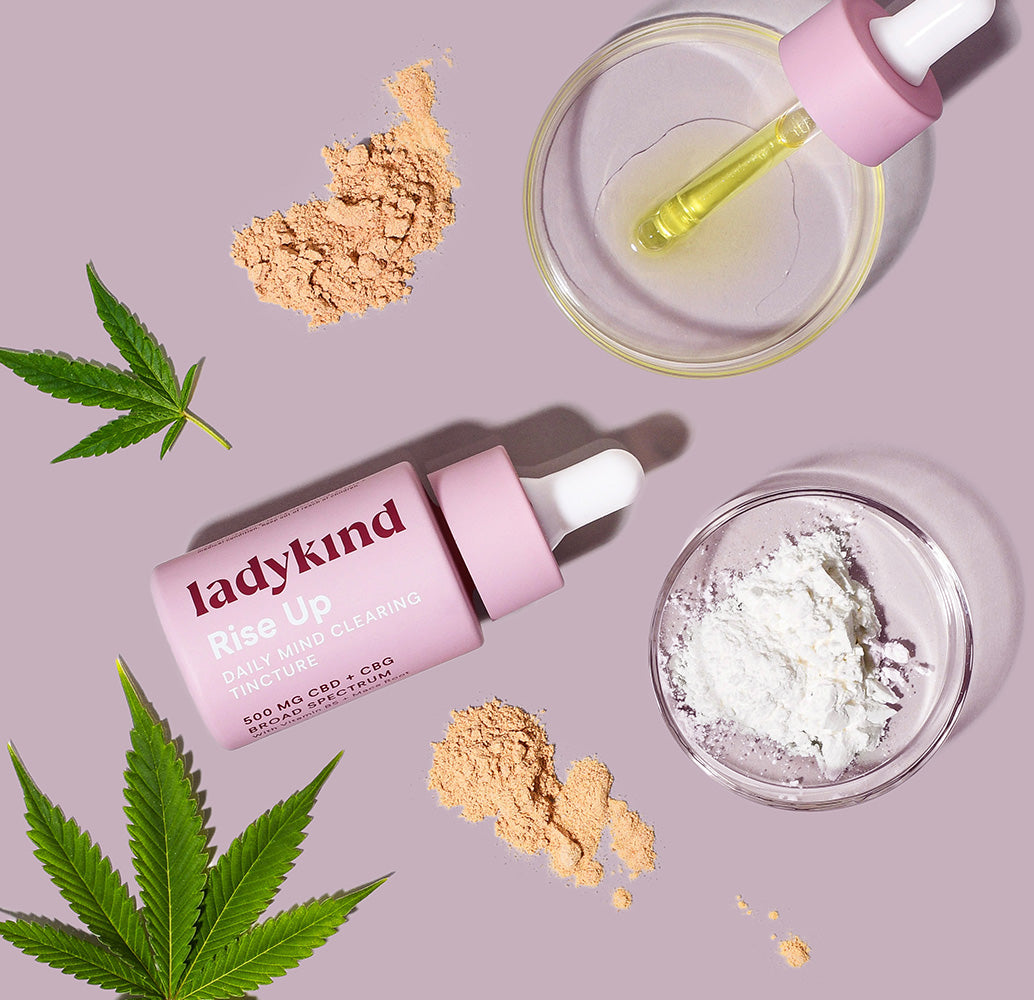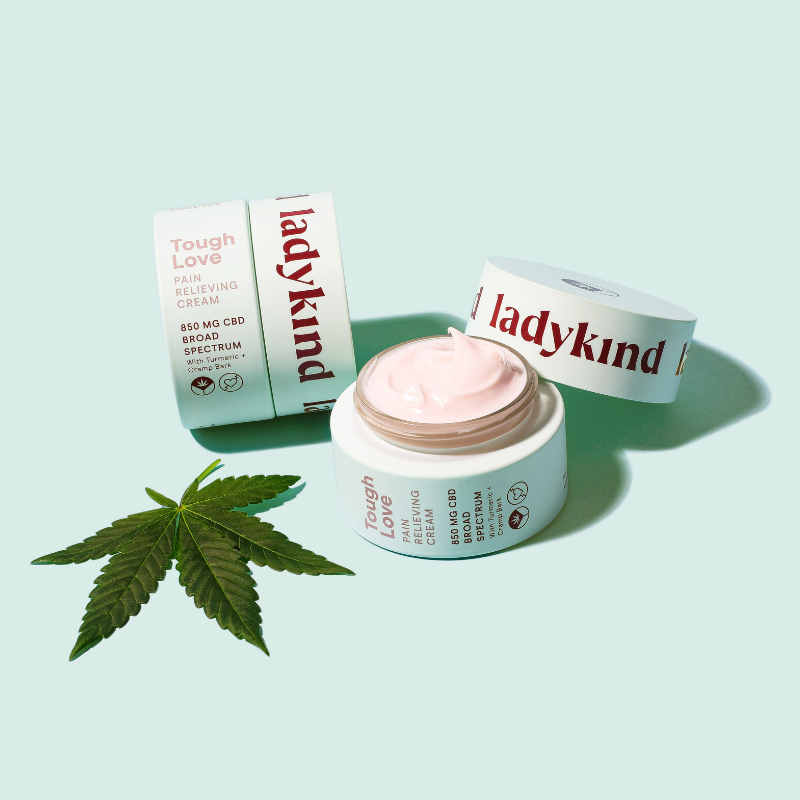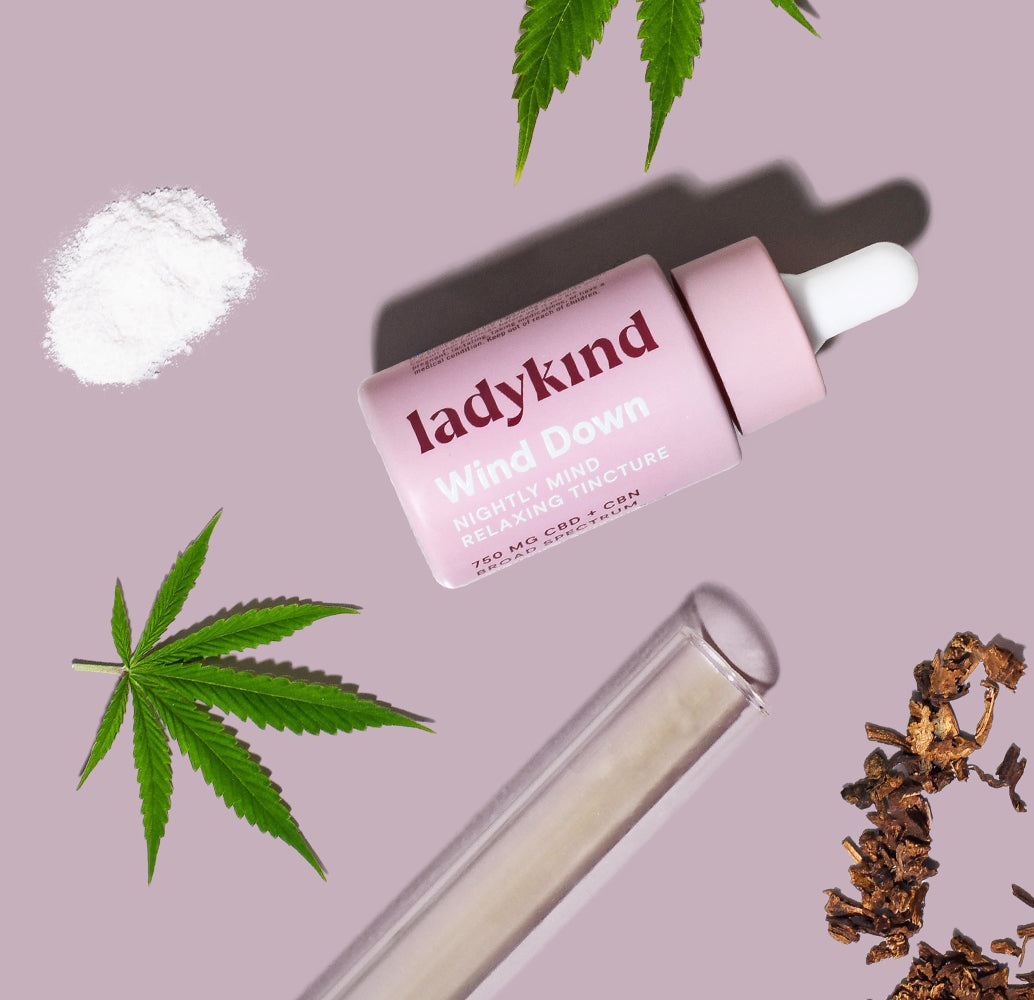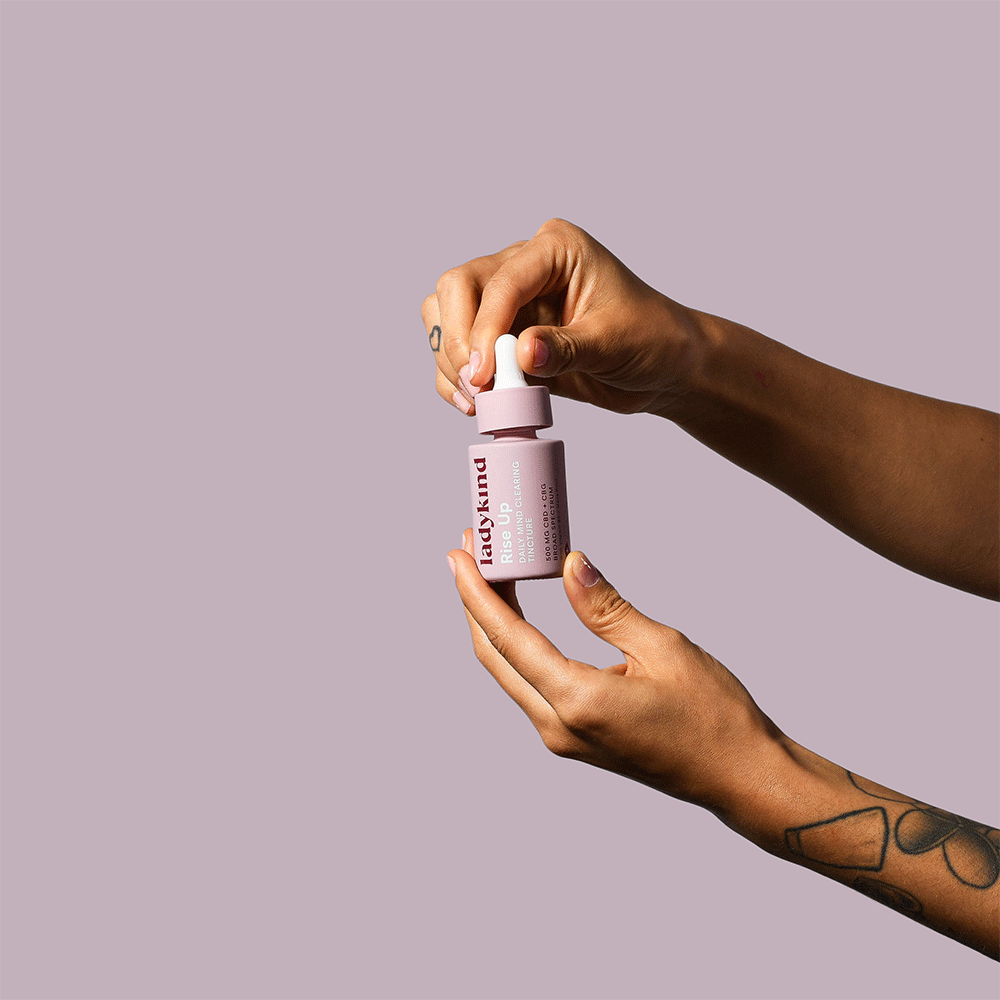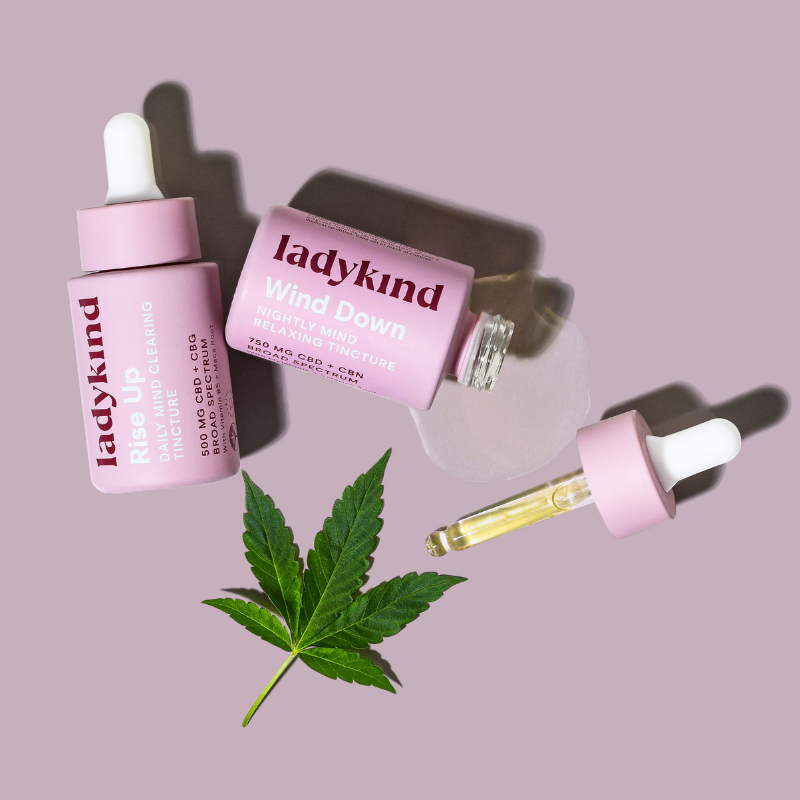This Father's Day, Ladykind is gifting the gift of education to all the fathers out there working hard to keep a healthy, happy home. To do this, we all have to make daily efforts to practice and further our understanding of how we can best support our partners. Typically, menstruation and menopause aren't popular topics of family dinner table conversation. From teenagers, young girls are conditioned to be private and reserved when it comes to talking about their periods, and as a result grow into adulthood largely uninformed about their own bodies.
When we encourage conversations about taboo topics such as menstruation and menopause, it empowers girls and women to familiarize themselves with their body and their awareness of what it needs + when. Likewise, men can benefit from these same conversations. Many think because they don't experience it, it's not relevant information. This couldn't be further from the truth. When we pull the curtain back on reproductive health for those who cannot experience it for themselves, we create space for the empathy we as women so desperately desire when suffering from painful symptoms of menopause or PMS.
Communication is always key. We conducted a small, coed focus group to find out what men should know about menstruation and menopause. Not surprisingly, we noticed a differentiation between the feedback we received from the men vs. women.
What women want men to know
"I wish they knew how it (menstruation) feels."
"I wish they had to endure this too."
"If men had to have the babies in this world, our population would be much smaller."
These are some of the women's responses on what they wish men knew about menstruation and menopause. Premenstrual syndrome (PMS) is real! For many women, its symptoms can be debilitating, featuring a range of physical effects nobody wants to deal with. Aside from listening to us moan and groan about how our cramps are killing us, bearing witness to our hot flash flare ups or dodging our random emotional outbursts, men have been blessed with the privilege of never knowing the discomfort we feel.
The men's feedback was not as concerned with empathizing with their female counterparts as it was curious as to why we suffer from these premenstrual symptoms in the first place, that inevitably alter our need for their support.
When men actually want to know
The majority wanted to know about mood swings. Why does a woman's attitude and behavior shift around the time of menstruation or menopause?
About a week to two weeks before she gets her period is when PMS symptoms start to occur. They'll persist until a few days after her period has started, so it can be a long stretch for those whose symptoms cause pain or discomfort. During this time, her hormone (specifically estrogen) levels fluctuate quite turbulently, which can directly impact the state of her emotional health.
This is the natural cycle of the female body. While there are no exceptions, there are ways to cope. Learning the routine of her body's cycle is a great start. By getting in-tune with her body's specific needs, she can adopt habits and practices that help prepare her body for the hormonal instability and find aids to alleviate the subsequent physical and emotional torture.
The men we talked to also inquired about the general timeline of women's reproductive health.
At what age do girls start their periods? When can they expect to see these behavioral changes in women who are pre-menopausal?
Although the answers to these questions vary by individual, you can estimate the likelihood of when a girl might get her first period or enter into menopause according to her mother's timeline. Most girls get their periods between the ages of twelve and sixteen. However, some may start theirs as young as age eight. So if there are young women in your life approaching this stage, it's important to equip them (and yourself) with knowledge and language they need to confidently welcome this transition into womanhood, prepare themselves for its lifetime of side effects and discover what they can do to manage it over time. As an adult in relation to a budding young woman, it's essential you open up dialogue to ensure her she has a safe space to explore the topic as her body begins to change.
Prepare her for her introduction to hormone imbalance, which can manifest as irritability, mood swings, depression, extreme lethargy, changes in appetite, tenderness in her breasts, abdominal bloating, acne, constipation or diarrhea, or the most notoriously known PMS symptom: cramping.
The degree of severity to which she will experience these symptoms is unpredictable, and can change at any point throughout her life. Some women are so distracted by the malaise, they have to take time off of work or school due to inability to focus or function. Others have such mild symptoms, they might not even be able to tell when their period is coming or going.
As for when a woman starts menopause, this too will vary by individual. It can happen for some women as young as forty five, while others continue to be able to carry out full-term pregnancies well into their fifties.
How can men can support women who suffer from painful PMS or menopausal symptoms?
Besides exercising patience, compassion and understanding (and indulging us in our food cravings when they arise), an easy remedy that also happens to make a thoughtful and considerate gift for any special lady in your life is Ladykind's Rise & Rest Set. This tincture pair was designed to help women's bodies naturally regulate hormone production levels to combat PMS. Both are crafted with the cleanest, highest quality and sustainably sourced CBD + other power ingredients that partner with the body's cannabinoid receptors to nudge horomone levels up or down as needed.
When she's experiencing cramping or fatigue, our Rise Up Daily Mind Clearing Tincture assists her distressed hormones with the boost they need to get her back on her feet and ready to tackle the day. When she experiences extreme mood swings, food cravings or anxiety attacks, our Wind Down Nightly Mind Relaxing Tincture administers the dose of calm they need to relax. If taken consistently (we recommend daily for best results), she'll experience periods and/or menopause that comes and goes with ease thanks to a newly stabilized hormone production cycle.

Nani Dominguez
Nani is a writer and communications consultant from Oakland, California. Visit notesbynani.com to learn more.

